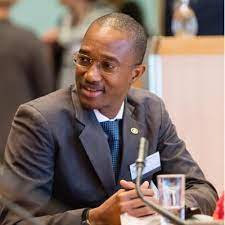In Africa, several local elected officials are committed to the implementation of participatory budgeting. In an interview with APA as part of the 9th Africities Summit in Kisumu, Kenya, Bachir Kanouté, Executive Director of Enda Ecopop analyses the benefits of participatory governance and gives a taste of the use of technological innovations in the collection of taxes by local governments.
Why are you attending the 2022 Summit in Kisumu, Kenya?
Enda Ecopop is a long-standing partner of United Cities and Local Governments of Africa (Africities Summit organizers). I have participated in this meeting since its first edition. We have an intellectual complicity on the debated themes and I am also a session operator. We have three sessions to run for the 2022 edition. The first one is about the participatory budget as a mechanism to promote the governance of intermediate cities, the second one is about the food governance of cities, and the third one will deal with the Local Governance Award that we have launched in Senegal. Regarding this prize, we are currently reflecting with the African Union (AU) and UCLGA on the perspective to give it.
Our presence here is also justified by our partnership with UCLGA for our distance learning platform on participatory governance.
What can the participatory budget contribute to the so-called intermediate cities?
When we talk about the sustainability of these cities, the question that arises is who are these actors and how do these actors deal with national institutions?
What we observe in Africa is that there is a mistrust and a deviance of the citizen towards institutions. The institution is there, but the citizen does not recognize himself in it. Everything happens during elections, we say that the mayor is elected and can manage, but between two elections, there is a much longer time.
If we want to avoid the crises that we see in some countries, it is important that the elected representatives of participatory democracy can work with the citizens. This is the relevance of the participatory approach, which allows the local institution to say what resources I have and how these resources can be used to meet the essential needs defined this time by the communities and not by the elected officials themselves?
Elected officials can plan, but the people know their needs better. By involving them, the participatory budget pacifies the communal space, gives credibility to the work of the commissions, and the communes that have adopted it have doubled their budgets in the two years it has been implemented.
At the African level, we are monitoring 1167 local authorities in some thirty countries that are implementing the participatory budget.
The participatory budget thus makes it possible to build the foundation for sustainable development in local authorities.
How can technological innovations help local governments collect taxes?
In Africa, we have found that mobilizing local resources is a big problem. It is often said that African cities are poor, they have no resources, but in reality, this is not true. The problem is that these resources are not identified, or if they are identified, they are not well mobilized. Based on this observation, we worked with young African computer scientists to develop a technological innovation based on cell phones to collect local taxes.
The 60 communes that have experimented with these innovations have increased their tax collection levels tenfold. Yet they complained about the lack of resources.
It must be said that this tool has given good results and we will scale it up. This is why UCLGA asked us to come and share it with the participants of the Africities 2022 Summit so that other cities and countries can benefit from it.
Has this tool found a favorable echo among Senegalese elected officials?
The demand is very strong. Even within the framework of the USAID/GOLD project, which supported the experimentation in three municipalities at first and then in 60 others, demand is very strong, but since it is an innovation, we are taking a very cautious approach.
Many large cities such as Tambacounda (East) are knocking on our door to ask us to help them with this technological innovation, but as I said, we are taking a cautious approach and are working with the General Directorate of the Treasury and Public Accounting (DGTCP), with whom we have a protocol that allows us to experiment, draw lessons and scale up.
The term intermediate city can refer to the popular economy. So, what are the links between the two?
The concept of the popular economy has evolved a bit. Today, we talk more and more about the social and solidarity economy, which allows us to see the creativity that exists in the territory. But studies have shown that when we talk about economy, we only perceive 1/8th of what there is in the territory. That is to say that it is the formal part of this economy that we see, as opposed to the informal part that is invisible. And the whole social economy part is not well perceived.
So, what can we do to promote this social and solidarity economy?
What we need to do is to have a good overview of what is going on, and then work with academics to have tools capable of quantifying this whole social and solidarity economy.
TE/cgd/lb/GIK/APA


